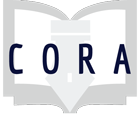A "jigsaw lite" activity to help students recognize that the information tools and systems they use in their everyday and academic lives are not neutral as existing power structures are reflected in the creation, organization, and access of information. Students work in small groups to read an assigned article about bias in a tool, source type, or system and answer questions to share with the larger class.
Assignments
A classroom activity and lesson plan for first-year students. Your students will learn to differentiate between different categories of items -- such as Popular/Scholarly, or Primary/Secondary/Tertiary -- by playing this fun and easy game.
This worksheet asks students to reflect on the type of primary law relevant to their legal research topic, as well as ask them to consider the levels of government, possible keywords, and preferred time period (current versus historical).
Research Resources the card game is an information literacy activity adapted from Apples to Apples game rules. Players write down their research topics, and their teammates suggest resources based on gold resource cards they have been dealt. Attached are the game instructions, cards, and discussion questions.
This lesson is designed for lower-division composition undergraduate students to learn frameworks for evaluating the audience and purpose of various information sources. After analyzing an array of sources for audience and purpose students can dig in to a source in more detail looking for markers of authority and discussing strategies for verifying claims.
BEAM Me Up is a one-shot session that works well in addition to a search strategies class, but can be done without. This session asks students to use the BEAM framework coined by Joseph Bizup to organize and synthesize research materials to create a complex and well-supported argument. Rather than evaluated sources using a checklist, the instructor using BEAM asks students to consider how the information will be used (and to consider how authors use information to build arguments). Adaptors may want to replace the sources given here with ones relevant to the students' curriculum.
In this activity, students learn how to locate and select appropriate primary sources for their assignment using library guides (libguides) and the library databases list. Students then analyze an example primary source to improve their primary sources literacy.
This low-stakes, in-class assignment is designed to help first-year seminar students learn about important library resources and present their findings to their fellow students. In teams, students complete a series of authentic research tasks (called challenges) such as selecting and citing images from our digital collection and using our discovery tool to find books on the library shelves. Each team is also assigned a unique challenge to learn more about the library.
Student select a company and complete very simple analysis of income statement, balance sheet and cash flow statements
The goal of this activity is to explore spaces, services, and information literacy (IL) concepts through problem-based scenarios, guided discovery, and peer teaching. Ideal for orientations for K-12, undergraduate, transfer, or graduate students, but can also be used for instruction requests with no clear research assignment or at the start of a research project. Students work in groups to find solutions to a scenario using guided directions and tools, and then teach the rest of the class based on their findings.
